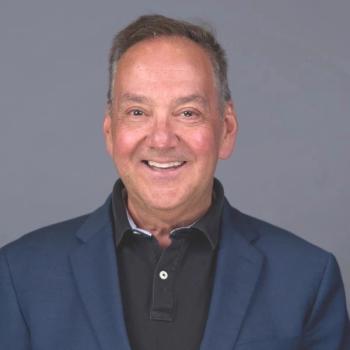
Pandemic Deniers: What’s With Them?
Some individuals refuse to wear masks or practice social distancing. Why? And what might change their minds?
Pandemics occur worldwide. I don't think it is a reach to assume that each time they appear they evoke fear, the desire to stay healthy, and ultimately a determination to stay alive. These 3 imperatives are everywhere now with COVID-19. I also see a fourth imperative. Ironically, while it is at the core of our need to know what's going on, not to mention our staying alive and safe, we almost never hear it mentioned. I would like to discuss it.
I'll start with our initial reaction: our impulse to know what's happening, to find words that name and explain the situation. At least with that we have a handle and can grasp it. We can begin the process of containing, controlling, and hopefully eliminating it and feeling safe again. All of this requires keeping our wits about us, keeping our sanity. That’s what I consider our fourth imperative: the need to remain clear-headed and sane.
Which, of course, raises the question: how does this apply to pandemic-deniers, the outliers who are not on the same page as the rest of us? I'm thinking of those who refuse to wear a face mask or publicly disregard social distancing rules. Some deniers raise their indignation to an unnecessarily dramatic level of outrage. It is their rights, we hear, that are front and center. They are holding their ground and standing up for what they believe. They even threaten to file lawsuits.
Sometimes, these dramas suggest a grim confidence and certainty, as if firmly grounded in some reassuring conspiracy theory. Sometimes the denial suggests instead a concealed distress, a desperation masquerading as disbelief. One mask, so to speak, replacing another. As I connect the dots, I can see that deniers bending to the call to wear masks and social distancing does not mean stretching themselves. It means actually breaking. But, when that strong grip on their beliefs appears excessive and overdetermined, doesn't it suggest a lurking fear of losing one's grip? So I wonder. Might that tight grip be the glue that is holding these pandemic-deniers together mentally, helping them feel level-headed?
I am still left pondering: how does one relate to them? How ought one to do so? More to the point, how might one convince them to take the recommended measures and help contain the pandemic? I usually end up playing with snide quips, like, "What color is the sky in your world?" or imagine myself offering a mask and saying: "It is just to cover your bets, dear. Everyone else is." But that will not change anyone’s mind.
Maybe there is another way. All I seem able to come up with is to start with common ground, our shared reality, meaning our common spirit of resistance and readiness to fight. The problem, of course, is that our targets are so different. Ours is the virus that threatens our health and lives. Theirs is surviving some imaginary campaign that is out to violate their rights and crush their identity and power of self-determination. But on some level, our missions are the same: maintaining our integrity and surviving. I aim to save a life and maintain a living and breathing self, and they aim to preserve the identity and power of that same self. And, who hasn't heard the expression, "Death Before Dishonor!"
I am stuck. It is as if the denier's firmly held belief is not a belief or policy that I can relate to or even discuss. They do not want to discuss facts, so that option is off the table. Their firm belief, from wherever and whomever they received it, has so completely consumed them that there is no room for reason or discussion. I cannot relate to that, not even indirectly. A metaphor comes quickly to mind, and one that seems familiar and understandable. Their beliefs are like drugs, and their source (their dealer) is what ensures their addiction to these beliefs and their inability to see the reality around them. Facts and our help are useless if they cannot break free of the grip of their dealer and drugs.
It turns out there is a path forward that I can see, and that I had overlooked. It is a path that was before me all the time, but I had ignored it. It is that face masks and social distancing must become compulsory and with consequences. This path, I hurry to point out, derives entirely from my experience and observations as a practicing psychotherapist, not from any personal frustration or law-enforcement predilections. It is that there are two paths to recovery, not one, from self-defeating types of behaviors. We are taught that insights and understanding are what can lead to behavior change. But it is clinical experience that reveals that the reverse is also true. Behavior change, including compulsory behavior change, can be followed by insights and understanding.
Newsletter
Receive trusted psychiatric news, expert analysis, and clinical insights — subscribe today to support your practice and your patients.







